Exploring the Blockchain Gaming Landscape: Key Trends and Titles
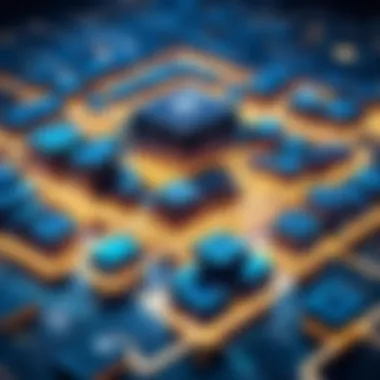

Intro
The rise of blockchain technology has created waves across various industries, with gaming surfacing as an intriguing frontier. Unlike traditional gaming formats, blockchain gaming utilizes decentralized ledgers to offer players ownership of their in-game assets and enhances transparency. This transformative potential has shifted not just how games are played but also how communities interact and economies function within these digital realms.
In a rapidly changing tech landscape, exploring how blockchain integrates into gaming does not merely cover the surface of available titles; it dives into the very mechanics that shape player experience and engagement. This guide unpacks the nuances of today’s blockchain games, defining key trends while offering insights into how they not only enrich gameplay but also influence larger market strategies.
It’s critical to understand that blockchain gaming is not a fad. The technology is evolving and has immense potential. This article will break down the current offerings, spot key developments, and provide guidance on navigating this burgeoning sector.
Tech Trend Analysis
Overview of the current trend
Currently, the gaming world is abuzz with blockchain titles that are making strides into mainstream consciousness. Games like Axie Infinity and Decentraland showcase how blockchain can be woven into immersive experiences. Players aren’t just passive consumers; they become active stakeholders, with their decisions impacting the economy and governance of the game.
The introduction of non-fungible tokens (NFTs) within games has allowed players to trade unique digital assets. This shift is not merely a gimmick; it’s a fundamental change in how value is assigned to digital properties. Ownership means something different now in virtual worlds; players craft, trade, and sometimes even win substantial sums through play, adding layers to the traditional gaming experience.
Implications for consumers
For gamers, this shift signifies a more engaged and potentially profitable experience. Imagine possessing true ownership of in-game items that can be sold or traded outside the gaming universe. This creates a dynamic where players can derive an economic benefit from their time spent gaming.
However, there’s a flip side. With greater engagement comes additional responsibility. Players must be savvy about the digital assets they invest in, including keeping an eye on market trends and understanding the technological nuances.
Future predictions and possibilities
Looking down the line, experts suggest that as blockchain technology matures, its integration into gaming will deepen. We might see new genres emerge that leverage blockchain's strengths. For instance, community-driven governance models could see players influencing the game’s future direction directly.
Moreover, collaborations between big gaming brands and blockchain developers hint at broader acceptance. Imagine iconic franchises venturing into blockchain, effectively merging traditional gaming with this innovative technology.
"Blockchain could redefine what gaming means, turning players from consumers into creators and owners."
The evolution of blockchain gaming is one to watch, not just for its entertainment value but for its potential to shake up economic landscapes and redefine community interactions.
Product Reviews
While diving into various blockchain games, it’s important to assess their unique features, performance, and the overall experience they offer. Let’s take a closer look at notable examples in the space.
Foreword to Blockchain Gaming
In the modern era, video gaming has seen a whirlwind of changes, many of which have tailor-made the experience for players around the globe. Among these changes, blockchain technology is making waves, reshaping the very fabric of what gaming means. Its significance lies not just in adding a digital ledger to transactions, but in crafting a new paradigm where players hold true ownership of their in-game assets. This phenomenon is already proving to be a pivotal development in the industry.
Definition and Key Concepts
First off, let’s untangle what we mean by blockchain gaming. At its core, blockchain gaming melds the principles of blockchain with traditional gaming elements. This includes decentralized networks, where players are no longer mere consumers but active participants in gameplay mechanics and ownership.
The term "decentralization" is crucial here. In traditional gaming, companies like Electronic Arts or Activision often dictate terms, server access, and even what users can do with their purchased assets. Conversely, in blockchain gaming, the framework allows for peer-to-peer interactions. This means players can trade or sell their assets without any middleman, building an economy driven by the community.
Key concepts in this genre revolve around tokenization. With tokenized assets, players possess unique digital items verified on the blockchain. These items can range from skins and avatars to real estate within a game. Another important element is smart contracts - self-executing contracts with the terms of the agreement directly written into lines of code. These enable automated transactions and enforce rules without requiring third-party intermediaries.
Here are some foundational terms you might encounter:
- Cryptocurrency: Digital currency that operates on a blockchain.
- NFT (Non-Fungible Token): A unique digital identifier that proves ownership of a specific asset.
- Metaverse: A collective virtual shared space, encompassing several digital realms.
The Evolution of Gaming
The gaming industry has undergone significant transformations. Dive back a couple of decades, and you’ll see how the evolution of technology, from arcade machines to console gaming, to mobile apps has paved the way for immersive experiences. With the introduction of the internet, online multiplayer games became the norm, stitching together communities of players.


The concept of ownership, however, remained heavily one-sided until now. Players were never truly owners of their in-game items; they merely licensed them, susceptible to the whims of developers who could ban or eliminate them at any time. However, blockchain gaming is beginning to change this narrative.
It's crucial to recognize that we're not merely adding blockchain for the sake of it. The integration aims to bolster player agency. Players are encouraged to participate actively in game economies, allowing an ecosystem where personal investment translates to real-world benefits. This leap in evolution not only enriches gameplay but also opens avenues for financial incentives, thus introducing the idea of play-to-earn models which others have only toyed with until now.
"As blockchain transforms gaming, it's not just about the games themselves but the community experience players share."
It’s evident that the landscape of gaming is at a fascinating juncture. The exploration of blockchain in gaming isn’t merely scientific or technical; it reaches right into economic models and community dynamics. Understanding how these systems interact is essential for anyone invested in the future of the gaming world.
The Mechanisms Behind Blockchain Games
Understanding the mechanisms behind blockchain games is like peeking under the hood of a complex machine; it reveals the innovation that drives it. These mechanisms not only define how gamers interact with one another but also establish the framework for economic models within these virtual worlds. With decentralization, smart contracts, and tokenization, blockchain technology establishes trust and ownership for its players, radically transforming traditional gaming experiences.
Decentralization and Ownership
At the heart of blockchain gaming lies decentralization. Unlike traditional games, where control rests with developers and publishers, blockchain empowers players by allowing them direct ownership of their in-game assets. This shift from centralized to decentralized models means that players can trade, sell, or leverage their assets without interference from a central authority.
Decentralization fosters a unique sense of community. Players can validate transactions and ensure fairness. Imagine a rare virtual sword within a game where you’re the true owner, not just a user of a license that could be revoked. This dynamic increases player investment and boosts engagement. Essentially, with decentralization, the players hold the keys to their digital castles.
Smart Contracts in Gaming
Smart contracts act as the backbone of blockchain games, acting like a digital referee that automatically enforces rules and executes transactions when predetermined conditions are met. These are self-executing contracts coded into the blockchain, allowing for trustless transactions between parties.
For example, in a blockchain game like Axie Infinity, breeding new creatures happens seamlessly with smart contracts. When players agree to breed their Axies, a smart contract ensures that the offspring is produced according to the game’s predetermined rules, eliminating the potential for disputes.
Different games also utilize smart contracts differently, such as managing in-game economies, rewards distributions, or governing player interactions, which simplifies and secures gameplay mechanisms. The reliability of smart contracts not only streamlines interactions but also builds player confidence, as they don't rely on an entity to mediate engagement.
Tokenization of In-Game Assets
The tokenization of in-game assets is perhaps the most revolutionary aspect of blockchain gaming. By converting in-game items into unique tokens on the blockchain, each item can possess distinct traits, ownership, and history. This provides players with tangible value for their assets, as these tokens can be traded or sold on various marketplaces.
In effect, players move from simply using items to owning them. Consider the Decentraland platform, where players can buy, sell, and develop virtual parcels of land as non-fungible tokens (NFTs). Each piece of virtual land is tokenized, offering uniqueness and value that extends beyond participation in the game.
Tokenization opens up a plethora of possibilities for players. They can collaborate on projects, create economies, and establish lucrative avenues of income. However, it also poses challenges; fluctuations in token value can impact the in-game economy, requiring careful balancing by developers.
Blockchain games are transforming the industry by fostering player autonomy, trust, and creative opportunities through mechanisms that disrupt traditional gaming paradigms.
In summary, the mechanisms behind blockchain games are laying the groundwork for a new era in gaming. Understanding decentralization, smart contracts, and tokenization unveils the radical shift toward an ecosystem driven by player ownership and collaboration. This intricate landscape is not just about digital play; it's an evolving arena for innovation, investment, and interaction.
Popular Blockchain Games Today
The realm of blockchain gaming has erupted into a vibrant playground where players engage with their favorite titles in entirely new ways. As the industry tourism expands, understanding the popular games in this space becomes crucial. These games aren't just there for the fun factor; they often introduce innovative mechanics and economic systems that redefine how players look at ownership and participation in gaming. Key considerations include how these games leverage blockchain technology to create unique user experiences and economic ecosystems for both novice players and seasoned gamers.
Overview of Top Games
Axie Infinity
Axie Infinity stands as a forerunner in the blockchain gaming universe. Its unique feature lies in the creature-collecting mechanism, where players raise and battle cartoonish figures called Axies. The play-to-earn model is a significant draw; players can earn tokens simply by participating in battles or trading their Axies. This has turned the game into a source of income for many, particularly in regions where earning potential can be quite appealing.
However, the reliance on the in-game economy poses challenges. Market fluctuations can lead to a roller-coaster of ups and downs for players relying on it for income. Yet, perhaps the greatest aspect is its community which thrives on collaboration, competition, and trading, making Axie Infinity not just a game but a digital ecosystem.
Decentraland
Decentraland is a blockchain-based virtual reality platform, making it a whole other ballgame. Here, users can buy, sell, and build on parcels of land, which are ultimately represented as NFTs. This ownership model serves as a key characteristic, allowing players to create unique experiences for others. Its immersive environment caters to digital artists, gamers, and even real estate moguls who want to invest in virtual property.
What makes Decentraland especially noteworthy is its potential to blend various activities, from social gatherings to art exhibitions in a space that players can truly call their own. However, the challenge that emerges here lies in the onboarding process for new users, as navigating the complexities of VR and blockchain technology can be intimidating for those not in the know.
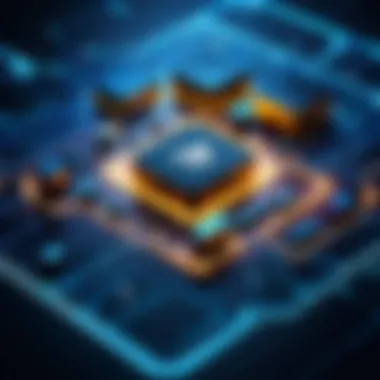
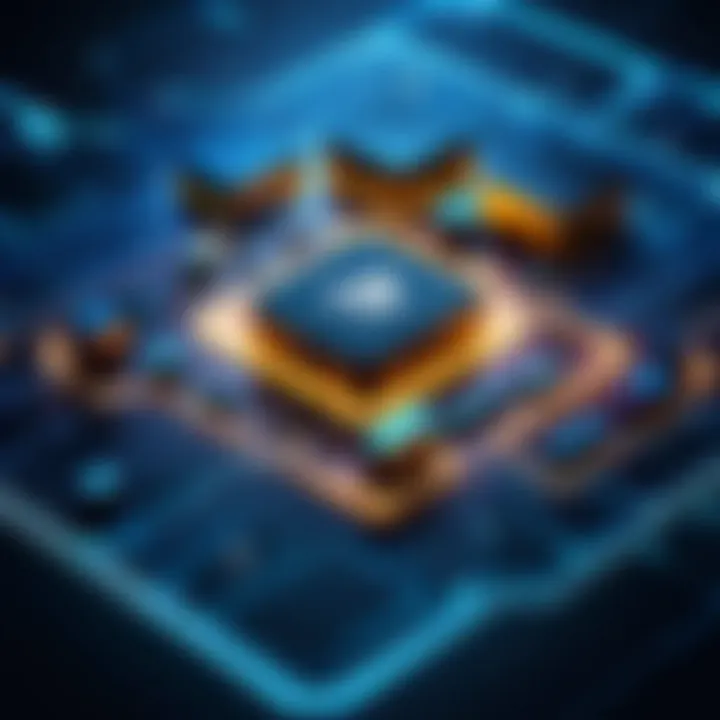
The Sandbox
The Sandbox shakes things up with its focus on user-generated content. This game allows players to create their own assets and game experiences using the platform's powerful tools, opening up paths for creativity that might not be seen elsewhere. With a built-in marketplace that facilitates buying, selling, and trading of user-created assets, it engages players in a way that feels both personal and participative.
The key aspect of The Sandbox is its community-centric approach, where users can construct games for others to enjoy. However, there lies a disadvantage in the technical barrier that some less tech-savvy gamers may encounter when creating their own content, limiting their participation in what is otherwise a robust ecosystem.
Unique Features of Each Title
These three games highlight the diversity housed under the umbrella of blockchain gaming, showcasing how different mechanics and user interactions can shape experiences.
- Axie Infinity: Play-to-earn economics provide real-world income opportunities.
- Decentraland: Ownership of virtual land introduces a new frontier in real estate.
- The Sandbox: User-generated content empowers creativity, allowing players to shape their gaming universe.
With each game contributing distinctly to the landscape, they underscore the potential that blockchain technology holds in revolutionizing how we interact with digital entertainment.
Innovations in Gameplay
In the bustling landscape of blockchain gaming, innovations in gameplay are not just shades of change; they are foundational shifts that redefine player interactions, economic models, and game design itself. These advancements are pivotal as they create a more engaging and rewarding experience for players, fostering a sense of community and ownership that traditional gaming lacks. As we delve into the specifics of these innovations—such as play-to-earn mechanics, interoperability across platforms, and user-generated content—it becomes clear that they are interwoven with the very essence of what makes blockchain technology a game changer.
Play-to-Earn Mechanics
The concept of play-to-earn mechanics has fundamentally transformed how players view the value of their time and effort in gaming. Traditionally, players invest hours in gameplay with little to show for it beyond enjoyment. However, with the play-to-earn model, players can now reap tangible rewards for their in-game achievements. Tokenized in-game assets can be converted to cryptocurrency or sold on various marketplaces, creating real-world value.
This mechanic not only incentivizes participation but can also lead to new experiences. Gamers—especially those in regions with limited economic opportunities—find themselves earning a living through their gameplay. For instance, titles like Axie Infinity have seen players earn significant income through their efforts. Yet, there are considerations to keep in mind. Players must navigate volatile cryptocurrency markets and understand the risks involved in investments related to these games. Additionally, balancing the appeal of earning with the core gameplay experience is crucial, as player retention relies on enjoyable interactions as much as financial rewards.
Interoperability Across Platforms
Interoperability is another groundbreaking feature gaining traction in blockchain games. The idea that assets can move freely across different games and platforms has significant implications. Imagine investing time acquiring a rare sword in one game, only to find that it can be used in another gaming world, creating a fluid gaming ecosystem.
This functionality is made possible through blockchain technology, which allows unique assets to be verified across systems. It brings a level of continuity and value to player's efforts, enabling them to utilize their investments across various experiences. Furthermore, this can lead to expanded social connections, as players interact in differing contexts while using the same assets. Yet, developing standards for such interoperability presents challenges. Would developers need to collaborate on protocols, or will an overarching solution emerge in the market?
User-Generated Content
User-generated content (UGC) stands as a hallmark of innovation in many blockchain games, allowing players to flex their creative muscles and participate in building the game world. Players can create new levels, items, or even entire story arcs, enriching the ecosystem significantly. For instance, Decentraland encourages users to design and sell virtual real estate, while The Sandbox facilitates users to craft their own games within the platform.
The beauty of UGC lies in its potential to sustain games over the long haul. When players can contribute to a game's evolution, they are more likely to remain engaged and active within that community. However, ownership rights become a critical consideration. Ensuring fair compensation and rights management for user creations can prevent disputes and maintain community trust.
"User-generated content can become the lifeblood of a game, fostering a sense of ownership and community, but it also requires careful governance to navigate challenges around rights and compensation."
In summary, the innovations in gameplay within the blockchain gaming sphere are not mere novelties; they redefine player economics, enrich community interactions, and enhance game design overall. As we progress into an era where digital and real-world economies intertwine, understanding these innovations offers a glimpse into the future of gaming.
Challenges Facing Blockchain Gaming
As the blockchain gaming sector continues to grow and evolve, it's vital to understand the challenges that come with it. While blockchain opens up a new frontier for game developers and players alike, certain hurdles can hinder its full potential. Addressing these challenges isn't just about overcoming obstacles; it's about ensuring that the integration of gaming and blockchain continues on a path that is sustainable and beneficial for everyone involved.
"It’s not the mountain we conquer, but ourselves." This quote rings true, as the industry faces internal and external issues that require strategic solutions. Three significant challenges stand out: scalability issues, regulatory considerations, and environmental impact.
Scalability Issues
Scalability refers to a system's ability to handle growing amounts of work or traffic. In blockchain gaming, the issue becomes apparent when we observe a surge in player activity. Traditional blockchain networks, like Ethereum, have seen network congestion lead to slower transaction times and exorbitant fees. When a highly popular game suddenly sees an influx of players, transferring assets and conducting transactions can slow to a crawl.
Key Factors to Consider:
- Transaction Throughput: The number of transactions a network can process in a given timeframe. Current platforms often fall short during peak times.
- Latency: Delays in processing can frustrate gamers, leading to a less enjoyable user experience.
- Network Fees: High transaction costs can deter new players from entering the ecosystem.
Solutions are being explored. Layer 2 solutions, sidechains, and alternative blockchains aim to enhance the efficiency of transactions. The choice of blockchain technology can shape the scalability of a game’s ecosystem significantly.
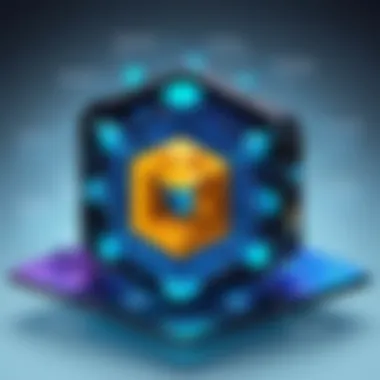
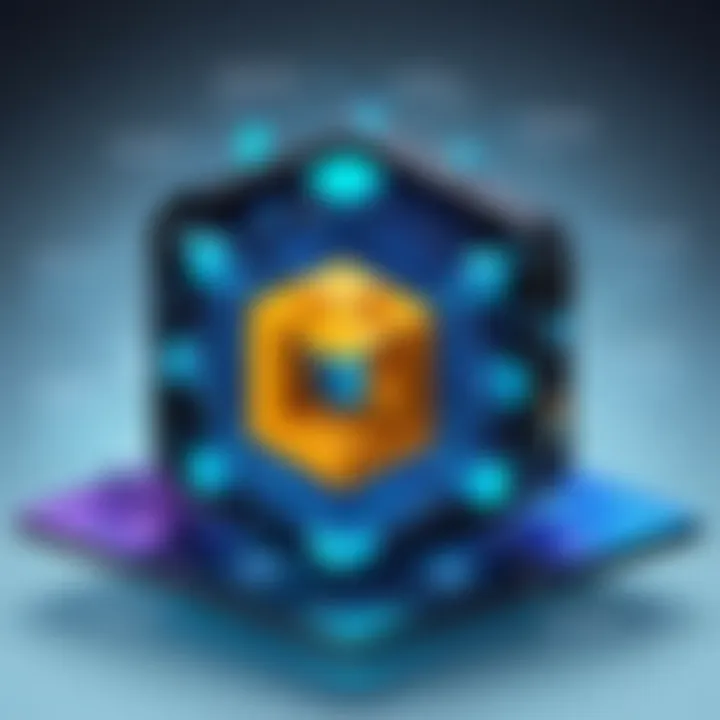
Regulatory Considerations
As blockchain technology is relatively new, regulation is still finding its footing. Governments are grappling with how to classify and regulate digital currencies and assets, which can lead to uncertainty for both developers and players in the blockchain gaming arena. The actions of regulators can have ripple effects across the industry.
Important Aspects Include:
- Legal Classification: Understanding how in-game assets are classified; are they commodities or securities? This affects how they can be traded or abandoned by developers.
- Consumer Protection: As games offer more complex economics, ensuring players' rights and safeguarding their investments becomes crucial.
- Global Jurisdiction: The decentralized nature of blockchain can create conflicts with national laws, complicating compliance for developers.
The Future of Blockchain Gaming
As blockchain technology continues to infiltrate various sectors, its potential in gaming is becoming more apparent. This section aims to shed light on the future landscapes of blockchain gaming, weaving together key trends, expected growth, and the community dynamics that are shaping this burgeoning industry. The importance of exploring the future of blockchain gaming lies in acknowledging how these developments can transform not only gaming itself but also the economic models and community structures surrounding it.
Emerging Trends
The gaming space is no stranger to evolution, yet blockchain introduces a unique twist that could redefine gameplay and player interactions. Among the emerging trends, decentralized gaming platforms are paving the way for players to engage without central authority. This not only empowers players but also fosters a sense of ownership that has been lacking in traditional gaming environments. In turn, innovations like dynamic NFTs are becoming more prevalent, allowing players to access evolving in-game assets that can change based on player performance or community decisions.
Another trend worth noting is the rise of cross-platform gaming. As different blockchains begin to interoperate, players will soon enjoy seamless transitions between games and platforms. This interoperability enhances player experience and community collaboration, enabling users to build richer experiences than what singular games might offer.
Additionally, the concept of play-to-earn mechanics continues gaining traction. With this approach, players aren't just investing time into a game; they are also providing value with their skills. The potential for earning while playing reshapes the player’s motivation and could very well attract people from outside the traditional gaming sphere.
"Blockchain is not just a trend; it is shaping the gaming industry's future, paving roads for richer and more rewarding engagement for players."
Potential Market Growth
The potential market growth in blockchain gaming is not just a shot in the dark; it's backed by substantial data and projections. When we look at the initial investment in blockchain gaming companies, the figures are staggering. In 2022 alone, blockchain gaming saw investments exceeding 4 billion dollars, a clear indicator that venture capitalists are placing their bets on this sector's sustainability.
As more and more players engage in blockchain games, the market is likely to swell further. It’s predicted that the market could rise to an astonishing 39 billion dollars by 2025. Such predictions fuel significant interest from stakeholders across the industry. Traditional gaming companies are recognizing that this shift can’t be ignored; they might need to adapt or become obsolete.
With growing awareness and a burgeoning community, user adoption is expected to increase, thus leading to even higher revenues not just from game sales, but also from secondary markets surrounding digital assets. Token economies can create brand-new revenue streams that previously went untapped in the gaming world.
Player Community and Ecosystems
A vibrant player community is a necessary component for any game's longevity. In blockchain gaming, the community isn’t only a group of players, but rather an ecosystem of stakeholders including developers, investors and players. Players are not just consumers; they become co-creators and possess a stake in the game's success through their involvement.
These communities thrive on a sense of belonging, often driven by forums and social platforms such as Reddit and Discord. Players exchange tips, trade in-game assets, and even collaborate to shape the game world directly. The social layer of blockchain gaming cannot be underestimated; it serves as the glue holding everything together.
Moreover, the establishment of dedicated community governance structures is emerging. These arrangements allow voice and choice, enabling communities to develop rules and guidelines that govern their interactions within the game ecosystem. Such frameworks can lead to better gameplay experiences and increased player retention.
In summary, the future of blockchain gaming is painted with promising trends, robust market potential, and a dynamic community. As this sector continues to mature, it will undoubtedly bring exciting developments and opportunities for players and developers alike.
Culmination
Understanding the emerging world of blockchain gaming is paramount in grasping the future trajectory of the gaming industry. This convergence of technology and entertainment creates not just new avenues for gameplay but also fundamentally redefines ownership and economic structures within gaming. The mechanisms driving blockchain games—like decentralization and tokenization—bring a range of benefits that fundamentally challenge traditional models.
Summary of Key Insights
As we explored throughout this article, several pivotal insights emerged that shape our understanding of blockchain gaming:
- Decentralization empowers players, providing greater control over in-game assets and allowing for true ownership.
- The integration of smart contracts offers a level of transparency and fairness in gaming that has often been lacking in conventional formats.
- The tokenization of assets changes how players engage with their favorite games, enabling them to earn tangible rewards for their time and effort.
- The rise of play-to-earn models has transformed gaming from a mere pastime into a viable source of income for many.
- Community and ecosystem building are now more vital than ever, with players becoming stakeholders invested in the success of their games.
Each of these points exemplifies how blockchain technology ripples through not only the structure of games but also the culture surrounding them. The shift from passive enjoyment to active participation signals a pivotal change in how video games could operate.
Final Thoughts
Looking ahead, the blockchain game landscape is rife with potential yet fraught with challenges. Game developers are still navigating regulatory hurdles, scalability issues, and environmental concerns regarding blockchain usage. As the industry matures, players will likely find themselves at the forefront of exciting innovations that can redefine gaming as we know it.
"The road to innovation is paved with both opportunities and obstacles. The real success lies in how the industry adapts and evolves."
As players and developers continue to experiment and engage with these new modalities, it is essential to remain vigilant and informed. Keeping an eye on emerging trends will enable everyone involved, from casual gamers to industry professionals, to leverage the strengths of blockchain-enabled gaming. In short, the future is not just about gaming; it's about how we redefine interaction, economics, and community in digital spaces.
For additional insights and discussions, consider engaging with communities on platforms like Reddit and Facebook that focus on blockchain gaming.



